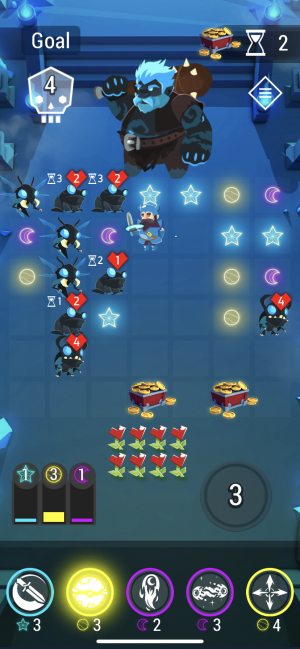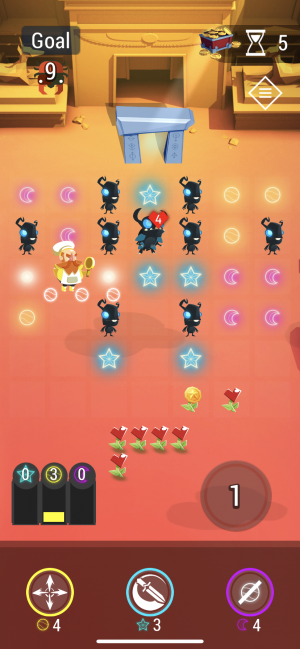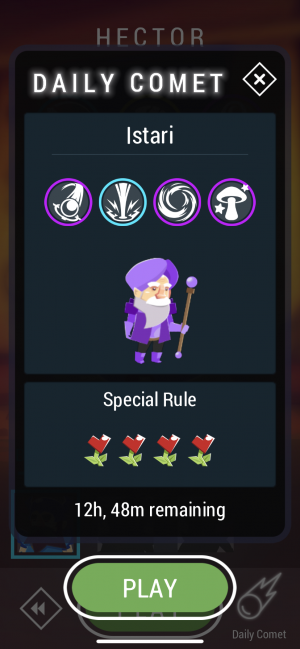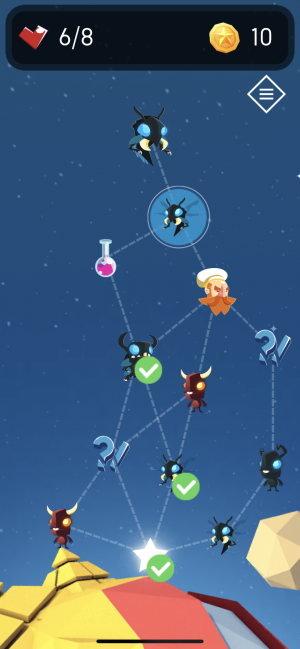Starbeard review

Starbeard is a match-three roguelike that is shockingly good. It takes most of the tired tropes of just about every matching puzzle game and throws them out the window. To top it off, the game has a long road of fun unlocks, interesting encounters, and virtually no filler to make for an instantly enjoyable and very repeatable experience.


Garden guardin'
Starbeard is a game about space-faring gnomes that travel through portals to defend their gardens from intergalactic bugs. The way they defend their garden is by wandering a battlefield full of tiles and enemies, making matches, powering up abilities, and unleashing them to stem the tide of threats headed toward your precious plants.
This may sound like a run-of-the-mill matcher already, but the difference is in the details with Starbeard. A unique character on the playfield who can match with tiles that match their color, a life meter that takes up physical space on the playfield, and the ability to only move the top tiles from columns are probably the biggest changes from standard match-three fare, but there are others as well.
Puzzle power
In Starbeard's standard mode, you teleport between gardens on planets through a menu system that closely resembles a hybrid of Into the Breach and Slay the Spire. You can choose the planets you take on in any order you want, but once there, you follow a branching path of levels, random events, shops, and upgrade stations. The game also sports a daily challenge that lets you test your matching abilities in a pre-set scenario and see how you measure up against other players via leaderboards.
Depending on which level you are on, your objective is either to match a particular number of specific tiles or kill a certain threshold of enemies. To perform these tasks, all you get is three moves per turn to rearrange the board and make matches. When you first start playing, this feels severely limiting. How can you clear advancing rows of up to seven tiles in just three moves? Starbeard's answer is its power system, which grants you all kinds of tricks to kill enemies and manipulate the board, provided you've matched enough tiles to use them.


Tinkered to near perfection
What really impresses me with Starbeard is how finely tuned it is. It seems like-no matter what situation you're in-you have options to that allow you to come out on top. It doesn't matter if you're playing with a board that seems stacked against you, you're down to your last heart flower, or both. Learning how to overcome these challenges, particularly while using powers or characters you aren't fully familiar with, is a big part of what makes Starbeard feels special.
There are very few things to complain about with Starbeard, but there are a couple of things that gave me pause when I first started playing it. First, the game isn't exactly a looker. The visuals are bright and colorful, but they feel a little crude and flat. Secondly, Starbeard doesn't fully explain how all of its systems work, which might result in some early runs being cut short due to unexpected outcomes. This seems to be pretty standard practice for roguelikes, though, and it's something that becomes less of a problem the more you play.
The bottom line
Starbeard is a fantastic puzzle game that's bursting with variety and possibility. It's also unlike most other matching games I've ever played. It may not make the best first impression, but Starbeard is definitely a must-play.


















